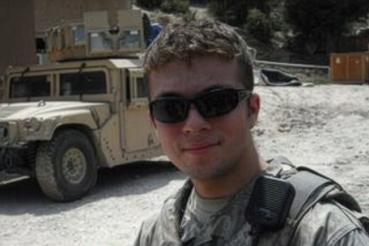Difficult experiences happen to all of us — it is part of the human condition. Many times experiencing and then recovering from a stressful event can even help us grow. But experiences of trauma can disrupt our lives in ways that affect the way we function, physically, socially and emotionally, especially when they are repeated, unpredictable or pervasive.
Trauma-informed care is about providing care that recognizes those traumatic experiences — past, present and ongoing — that cause disruption in relationships, families, communities and lives. It is about recognizing that our health and well-being are affected by such experiences, and it seeks to provide humanistic care and promote pathways to healing.
In recognition of Trauma Informed Awareness Day on May 25, Rush providers reflect on what trauma-informed care has meant to them.
Deepening empathy and breaking down barriers
To me, trauma-informed care is about looking beyond the face value of what a person is bringing to an interaction. It is the recognition that trauma shows up in one's body, reactions and relationships with others, and often those ways of showing up are how the body and brain offer protection based on past trauma. Understanding this and adopting a trauma-informed lens with every person — as a universal precaution — leads us to more productive interactions and deeper empathy, both with the patients we serve and with one another as Rush employees, faculty and students.
In other words, when we are confronted with feelings of frustration or defensiveness, utilizing this lens allows us to drop the rope, consider another's invisible struggle and redirect our energy toward supporting each other and maintaining our own well-being.
It is empowering and humbling to consider the impact trauma-informed care can have on our ability to break down barriers, address inequities and ultimately improve clinical quality across the system.
Rebecca Lahey, MSW, LCSW, Manager, Mental Health | Social Work and Community Health and Manager, Operations | Rush Wellness
Creating safe spaces and redefining resilience
For me, trauma-informed care is not only acknowledging trauma and its impact on survivors. For providers, it’s the act of relinquishing control and allowing the client/community to guide best practices in their care. When we say we are inviting them to a “safe space,” how do we know it’s really safe? Something as simple as asking, “What can make this space feel safe for you?” during client interactions can make all the difference.
Resilience is often defined as the ability to recover and adapt following a traumatic experience. The concept of resilience in trauma-informed care surfaces in different ways. Survivors should be recognized as resilient; however, use of this term can imply it is a characteristic one simply possesses and may ignore the hard work people engage in to manage their lives after experiencing trauma or discount those who have a longer, more difficult road to recovery.
Amanda Seanior, LCPC, Section for Community Behavioral Health in the Department of Psychiatry and Behavioral Sciences
Greater understanding expands quality care
When I first learned about the concept of trauma-informed care and saw the evidence around it, it was like a big aha moment. After years of providing care, often to those with lived experiences different than my own, understanding the impact of a person’s personal or systematized trauma on their health changed how I provided care and made me a better clinician.
Now that I manage clinical services and programs, bringing a trauma-informed lens to creating safe and trusting cultures of care extends this important concept and further improves patient care. It is a privilege to care for others, and being trauma-informed deepens my sense of privilege in this space.
Sally Lemke DNP, WHNP-BC, Director of Rush’s School-Based Health Centers, the Adolescent Family Center, and Affirm: The Rush Center for Gender, Sexuality and Reproductive Health
Finding new ways to connect
Trauma-informed care to me has meant that it’s never too late to sit with, not across from, our communities to ask, “What happened to you?” It is the radical idea que su lucha es mi lucha (that their struggle is my struggle).
Lorena (Lo) Ornelas, MA, LCSW, Manager Social Work Services, Community Based Practices in the Office of Community Health Equity and Engagement
Seeing strength in adversity
Embracing a trauma-informed approach has broadened and expanded my practice. It has opened my eyes to the stories within our patients, communities and staff. It has helped me contain and witness tragedy while at the same time recognizing tremendous strength.
Eve Escalante, MSW, LCSW, Manager of Program Innovation with Social Work and Community Health
Shifting perspectives to improve healing
For me, becoming trauma-informed started by learning the reasons behind many "why's." Why did this child stop talking? Why has this child been kicked out of preschool? Why is this child acting out?
Over the years in helping families with children who've experienced abuse or neglect — whether within or outside their family, within or outside their community — a common theme is disruption in that child's sense of security and attachment, resulting in developmental, social and emotional difficulties. Often this was related to trauma — abuse, neglect, separation from parents or other important caregivers, witnessing violence or experiencing the violence of those systems and structures around them.
Trauma-informed care shifted the question from "What's wrong with you?" to "What happened to you?" This created space for families to share experiences they may not have been able to share before. This approach has allowed me a deeper understanding of a child's and family's well-being, which in turn helps me know what may or may not work to help and heal.
Learning about trauma-informed care, its roots in the landmark ACEs study that looked at individual trauma, all the way to the latest policy briefs that address systemic trauma, has been revealing in a way that transcends the traditional "medical model" of conceptualizing health. It has led to initiatives and innovations that address root causes of health disparities, connects families to holistic supports, and supports communities in a manner that brings our collective goal — achieving health equity — within reach.
Gina Lowell MD, MPH, Director of Community Health for Pediatrics for Rush University Children's Hospital




